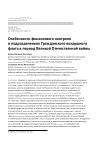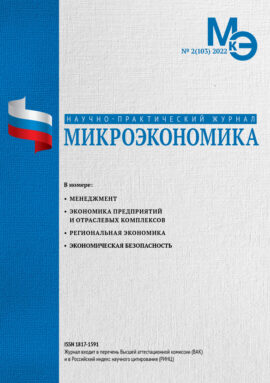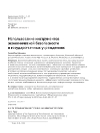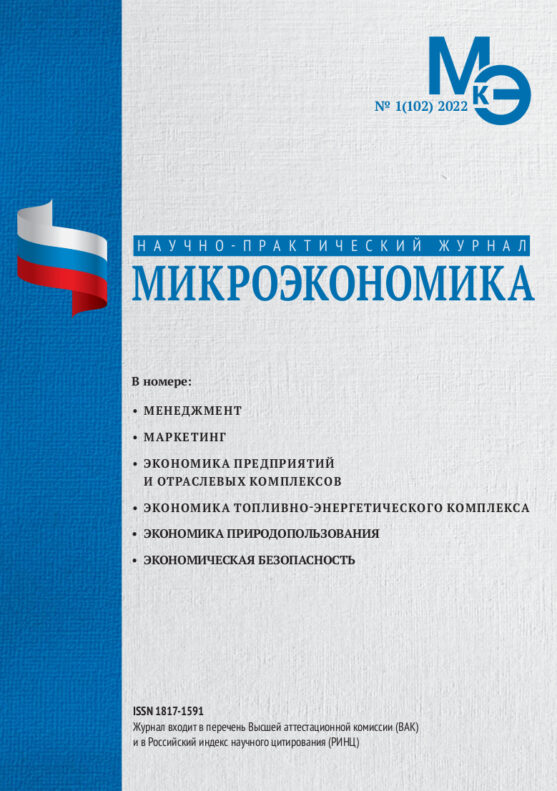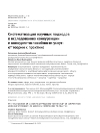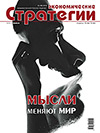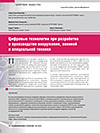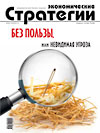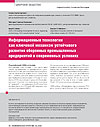Training of personnel for the development of innovative activities in the aviation industry of the Russian Federation
DOI: 10.33917/mic-5.118.2024.52-64
The aim of the study was to identify current development trends in the tourism industry. When conducting the study, methods for processing qualitative and quantitative information were used: methods for analyzing the structure and dynamics of key indicators, graphical and tabular methods for presenting research results. The information basis of the study consisted of statistical materials of the Federal State Statistics Service of the Russian Federation, periodical scientific press, and Internet resources.
Based on the results of the analysis, the main problems in the tourism industry of the Russian Federation were identified: insufficient development of tourism and transport infrastructure, lack of the required number of qualified personnel to work in the tourism industry, insufficiently developed digital environment and information resources in the tourism industry, etc. Based on the identified problems, measures were recommended supporting the tourism industry: increasing investment in the tourism industry by raising funds on the basis of public-private and municipal-private partnerships, life cycle contracts and special investment contracts; increasing the number of budget and extra-budgetary places in tourism specialties, expanding the list of educational programs in tourism destinations, and other measures.
References:
1. Passport of the national project (program) «Labor Productivity and employment support»: approved by the Presidium of the Presidential Council for Strategic Development and National Projects (Protocol No. 16 dated December 24, 2018. URL: https://base.garant.ru/72185994/?ysclid=lykkqnxtci881108903
2. Soviet Encyclopedic Dictionary. Moscow: Soviet Encyclopedia, 1985.
3. Passport of the national program «Digital Economy of the Russian Federation» (approved by the Presidium of the Presidential Council for Strategic Development and National Projects on December 24, 2018 No. 16). URL: https://base .garant.ru/72296050/?ysclid=lykkpit4uq663593874
4. Anpilogov N.I. Digitalization of the economy of the Russian Federation: the current state and directions of improvement. Vector of economics. 2023;5(83).
5. Babkina L.N., Skotarenko O.V., Khatsenko E.S. Modeling of the economic indicator of the standard of living of the population of the regions of the Arctic zone of the Russian Federation. Regional economic issues. 2022;2:10–19.
6. Passport of the national project «Science and Universities» (approved by the Ministry of Science and Higher Education of the Russian Federation, April 2023). URL: https://base.garant.ru/407955661/
7. Klushina L. Innovations in priority. Evening St. Petersburg. June 20, 2024. No. 20.
8. Bodrunov S.D. The State and the revolution. The economic revival of Russia. 2019;1(59):9–13.
9. Lischuk E.N., Kapelyuk S.D. Problems of developing digital skills of the population in Russian regions. Development of socio-economic, scientific and technological potential of regions as a factor in strengthening Russia’s position in the modern world, dedicated to the Decade of Science and Technology in the Russian Federation, the Year of Youth in the Republic of Khakassia (July 5–8, 2023). Abakan: V.M. Torosov Khakass Book Publishing House, 2023. C.121–125. URL: https://www.ieie.su/assets/files/news/2023/sbornik_3.07.23.pdf





